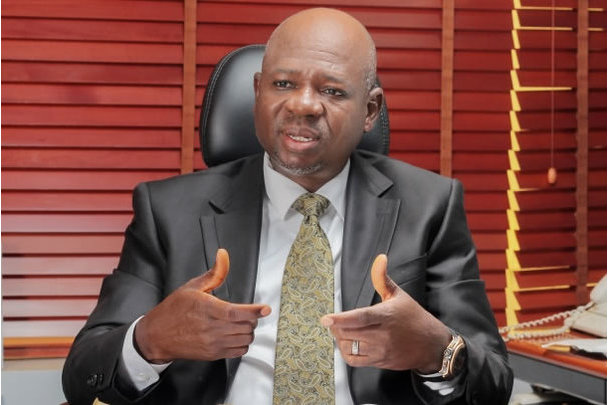The Managing Director/CEO of Infinity Trust Mortgage Bank, Mr. Banjo Obaleye, has said the number of Nigerians that can afford mortgage is very small because of a lot of challenges plaguing the mortgage sector.
Mr. Obaleye spoke when officials from Media Trust, publishers of the Daily Trust titles, paid a courtesy call on the bank in Abuja.
He said most investors were still investing in the sector not because it was profitable but because of the value chain opportunities the sector provided.
He said, “If enough attention is put on housing and all the value chain around it, a lot of jobs will be gotten and a lot of youths who are unemployed will find themselves busy. We have thousands and millions of youths who are out of school and cannot provide means of education for themselves, they will find work in housing construction. If you visit a development site and see the chain of activities going on there, you will know that this is a sector that should be on the move every time.
“Home ownership is personal to human heart. Apart from food, the next most important thing for humans is shelter. Everybody deserves a decent home, and this is the spirit that makes most investors invest in this sector; not because of money, the money is not there now,” he said.
He said because of the specialist role of mortgage banks it was time to change the perception about the role of mortgage institutions.
“If you look at the financials of many commercial banks this year, you will discover that many of them are declaring profits in billions of naira. Return on investment of many deposit money banks is over 20 per cent the industrial average, but for mortgage banks, it is less than three per cent; and why this is so is because we haven’t been looking at mortgage banks the way we should be looking at them,” he said.
Obaleye whose bank is listed on the floor of the Nigerian Stock Exchange (NSE), identified high interest rate as one of the reasons only few Nigerians could afford mortgage.
Daily Trust reports that taking out a mortgage allows firms and individuals to purchase and own houses/real estates without the immediate need to make an outright payment of the full value of the property from their resources.
The impact of high interest on mortgage on the nation’s housing delivery has continued to be a source of worry for stakeholders because high mortgage rates impede demand for housing.
Currently, interest rate on mortgage loans in Nigeria range between 15 per cent and 25 per cent per annum excluding fees and other charges. While mortgage banks charge between 19 and 24 per cent commercial banks charge interest rate at 22 to 23 per cent because they categorised real estate as a high-risk investment.
Mr. Obaleye said, “Interest rate is a very big problem because at 18/20 per cent interest rate, it is difficult to give somebody a mortgage for 15 years. But what can we do? If government who today is the biggest borrower, borrows money from the public at 14 per cent, then where do you want to get low interest rate? We wish that government will look at this interest rate and see how to bring it down so that everybody will have access to it,” he said.
He added that the fees payable to government authorities further compounded the cost of mortgage thereby discouraging would-be loan seekers.
He said, “You want a N15m loan but you have to pay like N2.5m to government for perfection (register the property), it compounds the cost of mortgage. Now we have to be doing what I refer to as selective lending. For us to break even, we have to be sensitive to our cost. We don’t have a big margin that is why we have to be sensitive of our cost,” he said.

 Join Daily Trust WhatsApp Community For Quick Access To News and Happenings Around You.
Join Daily Trust WhatsApp Community For Quick Access To News and Happenings Around You.


